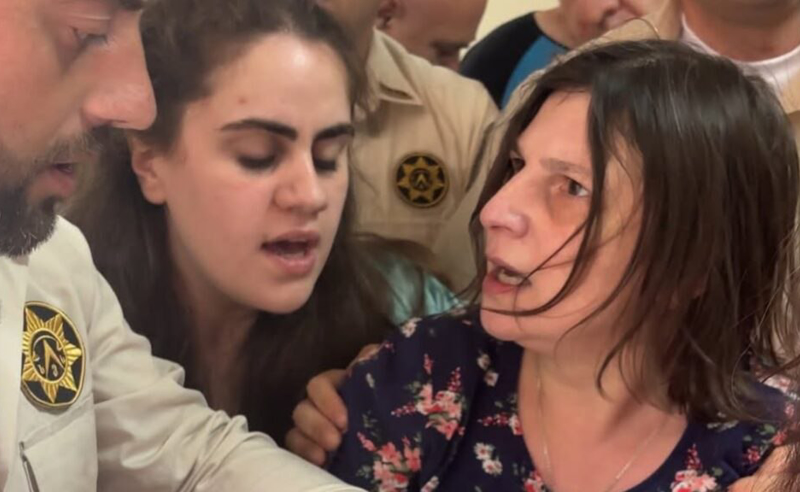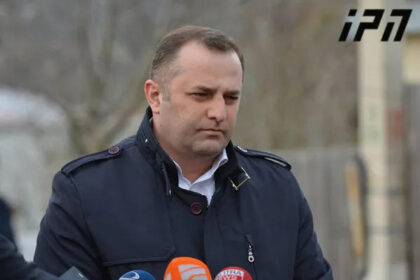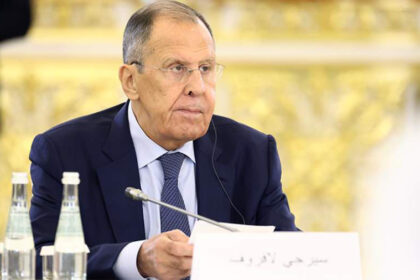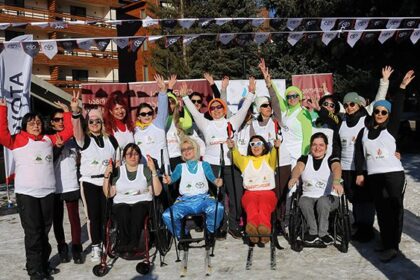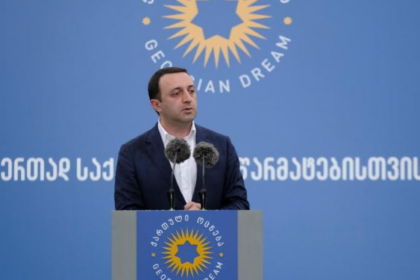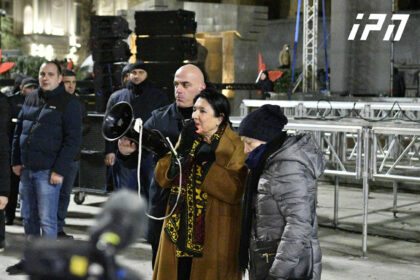**Government Targets Activist Over Courthouse Incident**
On June 11, Georgia’s Interior Ministry announced a criminal investigation against activist Nino Datashvili. According to the ministry, she allegedly assaulted a civil servant during a heated incident at Tbilisi City Court on June 9.
The controversy began when Nino Datashvili attempted to attend a hearing for detained protesters at the courthouse. However, bailiffs forcibly removed her from the court building after telling her that the hearing had already started and there was no more space inside. Video footage shows around five bailiffs dragging her out of the building, with one moment capturing her screaming at officers to release her newly operated arm.
The Interior Ministry claims that Nino Datashvili “did not comply” with the bailiff officers and physically assaulted one of them after being told she couldn’t enter the courtroom. If convicted, she may face a fine or up to three years in prison.
However, many question the motives behind the investigation. Some believe it’s an attempt by the government to silence Nino Datashvili, who has been an outspoken advocate for protesters detained during recent demonstrations. Others see this as part of a broader crackdown on dissent and opposition voices in Georgia.
**Similar Charges Against Journalist**
It’s worth noting that another high-profile case involving charges similar to those against Nino Datashvili has recently concluded. In December, journalist Mzia Amaghlobeli was detained for allegedly slapping the Batumi Police Chief, Irakli Dgebuadze. She faces four to seven years in prison if convicted.
**A Pattern of Repression?**
Critics argue that these cases reflect a worrying trend of repression against civil society and opposition voices in Georgia. By targeting activists like Nino Datashvili and journalists like Mzia Amaghlobeli, the government may be trying to intimidate others from speaking out or challenging its authority.
As we continue to monitor this situation, it’s essential to examine the broader context and potential implications for democracy and human rights in Georgia.
Read More @ civil.ge




